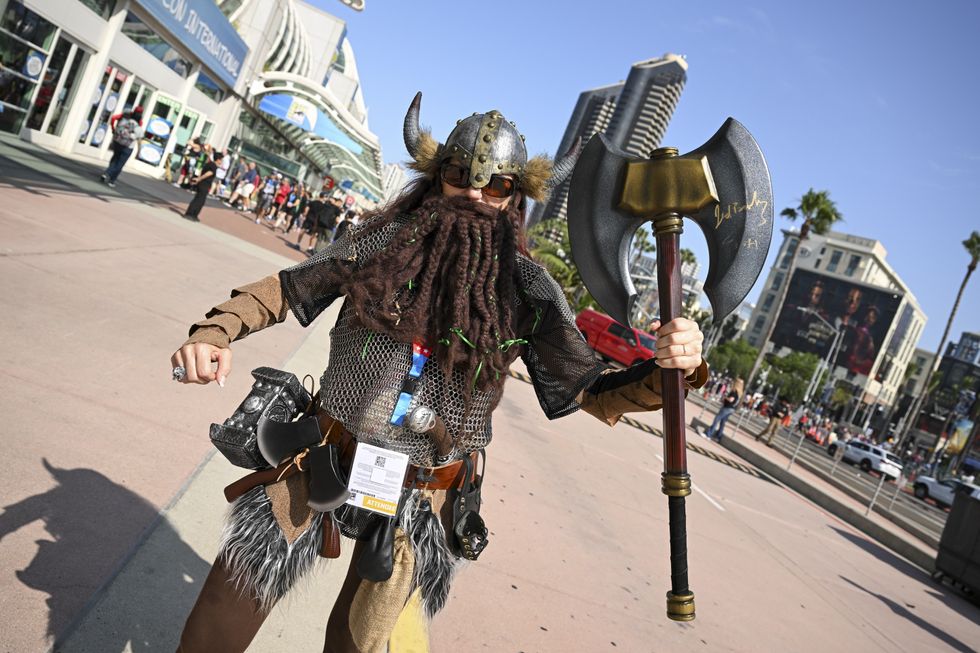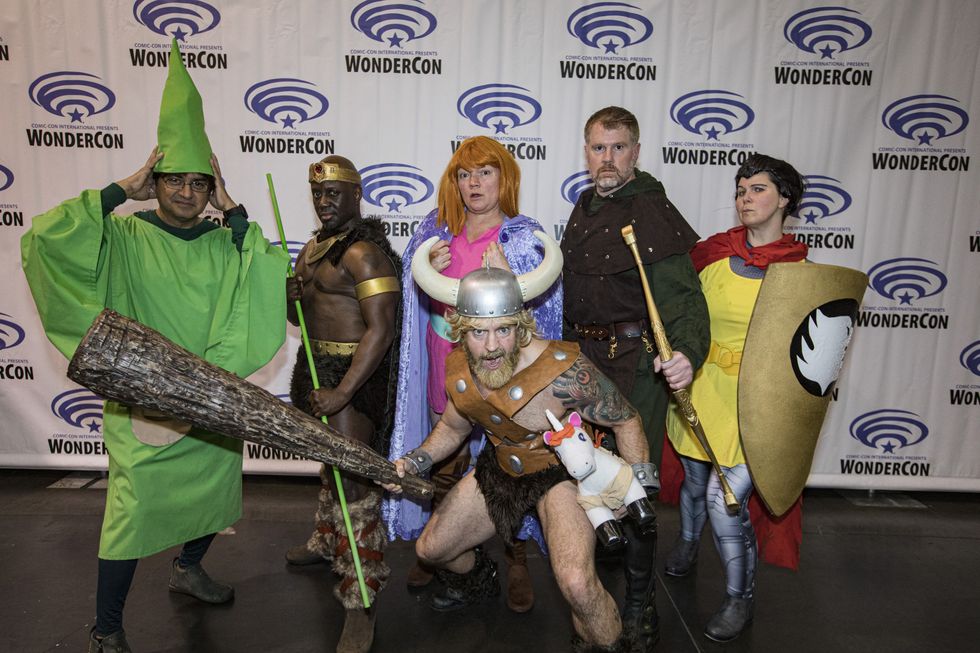Dimitris Kouimtsidis
Guest Reporter
Dungeons & Dragons has been slammed for going "woke" after removing racial differences between species and introducing trigger warnings.
The changes, introduced in the 2025 Player's Handbook by publisher Wizards of the Coast, mark a significant shift in the beloved game's 50-year history.
Under the new rules, mountain dwarves are no longer inherently brawny and durable, whilst high elves have lost their traditional traits of intelligence and dexterity.
The publisher, owned by Hasbro, made these alterations as part of a broader initiative to make the game more inclusive, stating that "race is a problematic term that has prejudiced links between real world people and the fantasy peoples of D&D Worlds".

The modifications have divided the gaming community, with some praising the inclusive approach whilst others decry it as unnecessary "woke" reform.
The new rulebook introduces a system allowing players to halt gameplay if they feel uncomfortable with any content.
Players can signal their discomfort by crossing their arms in an X shape or raising their palm, according to the handbook.
"The signal shouldn't trigger a debate or a discussion: thank the player for being honest about their needs, set the scene right, and move on," the guidelines state.
The publisher now recommends that extended campaigns begin with sessions where players can outline their expectations and specify topics they wish to avoid, such as sexual assault or drug use.
The changes extend to character creation, where the Hill Dwarf can now choose between two backgrounds: miner (gaining +2 to Constitution) or scholar (receiving +2 to Intelligence).
LATEST DEVELOPMENTS:

The reforms follow earlier modifications to Orcs and Vistani characters after criticism they were based on negative racial stereotypes.
The controversy intensified with the release of a 50th anniversary book, "The Making of Original D&D", which criticised the original game's content.
The foreword highlighted "insensitive and derogatory language" in the 1974 game, noting poor representation of women and controversial handling of slavery.
Robert J. Kuntz, who collaborated with original creator Gary Gygax, called the changes "unnecessary" and branded the publishers "snakes".
Elon Musk also responded to the changes, taking to social media to write: "Nobody, and I mean nobody, gets to trash E. Gary Gygax and the geniuses who created Dungeons & Dragons. What the f*** is wrong with Hasbro and WoTC?? May they burn in hell."

The publisher confirmed they had hired inclusivity consultants for the anniversary book, who helped identify "language we would not use today in gaming".
Some players view the changes as detrimental to the game's core appeal.
"Feels like everything is focus-grouped into an inclusive oblivion. Races and classes in a fantasy, make-believe, role playing game are gradually being reduced to aesthetics," one Reddit user wrote.
Others have welcomed the reforms as making the game more accessible.
"What they're trying to do here is put up a signal flare, to not only current players but potential future players, that this game is a safe, inclusive, thoughtful and sensitive approach to fantasy storytelling," said Ryan Lessard, a writer and dungeon master.
Find Out More...
The changes, introduced in the 2025 Player's Handbook by publisher Wizards of the Coast, mark a significant shift in the beloved game's 50-year history.
Under the new rules, mountain dwarves are no longer inherently brawny and durable, whilst high elves have lost their traditional traits of intelligence and dexterity.
The publisher, owned by Hasbro, made these alterations as part of a broader initiative to make the game more inclusive, stating that "race is a problematic term that has prejudiced links between real world people and the fantasy peoples of D&D Worlds".

The modifications have divided the gaming community, with some praising the inclusive approach whilst others decry it as unnecessary "woke" reform.
The new rulebook introduces a system allowing players to halt gameplay if they feel uncomfortable with any content.
Players can signal their discomfort by crossing their arms in an X shape or raising their palm, according to the handbook.
"The signal shouldn't trigger a debate or a discussion: thank the player for being honest about their needs, set the scene right, and move on," the guidelines state.
The publisher now recommends that extended campaigns begin with sessions where players can outline their expectations and specify topics they wish to avoid, such as sexual assault or drug use.
The changes extend to character creation, where the Hill Dwarf can now choose between two backgrounds: miner (gaining +2 to Constitution) or scholar (receiving +2 to Intelligence).
LATEST DEVELOPMENTS:
- 'Virtue-signalling' Sadiq Khan under fire AGAIN as 'woke' Overground rebrand named '2024 highlight'
- Ancient Greek classics hit with trigger warning by university for 'distressing' content
- 'Woke' theatre issues trigger warning for Charles Dickens play over Victorian-era insults and sexism

The reforms follow earlier modifications to Orcs and Vistani characters after criticism they were based on negative racial stereotypes.
The controversy intensified with the release of a 50th anniversary book, "The Making of Original D&D", which criticised the original game's content.
The foreword highlighted "insensitive and derogatory language" in the 1974 game, noting poor representation of women and controversial handling of slavery.
Robert J. Kuntz, who collaborated with original creator Gary Gygax, called the changes "unnecessary" and branded the publishers "snakes".
Elon Musk also responded to the changes, taking to social media to write: "Nobody, and I mean nobody, gets to trash E. Gary Gygax and the geniuses who created Dungeons & Dragons. What the f*** is wrong with Hasbro and WoTC?? May they burn in hell."

The publisher confirmed they had hired inclusivity consultants for the anniversary book, who helped identify "language we would not use today in gaming".
Some players view the changes as detrimental to the game's core appeal.
"Feels like everything is focus-grouped into an inclusive oblivion. Races and classes in a fantasy, make-believe, role playing game are gradually being reduced to aesthetics," one Reddit user wrote.
Others have welcomed the reforms as making the game more accessible.
"What they're trying to do here is put up a signal flare, to not only current players but potential future players, that this game is a safe, inclusive, thoughtful and sensitive approach to fantasy storytelling," said Ryan Lessard, a writer and dungeon master.
Find Out More...
